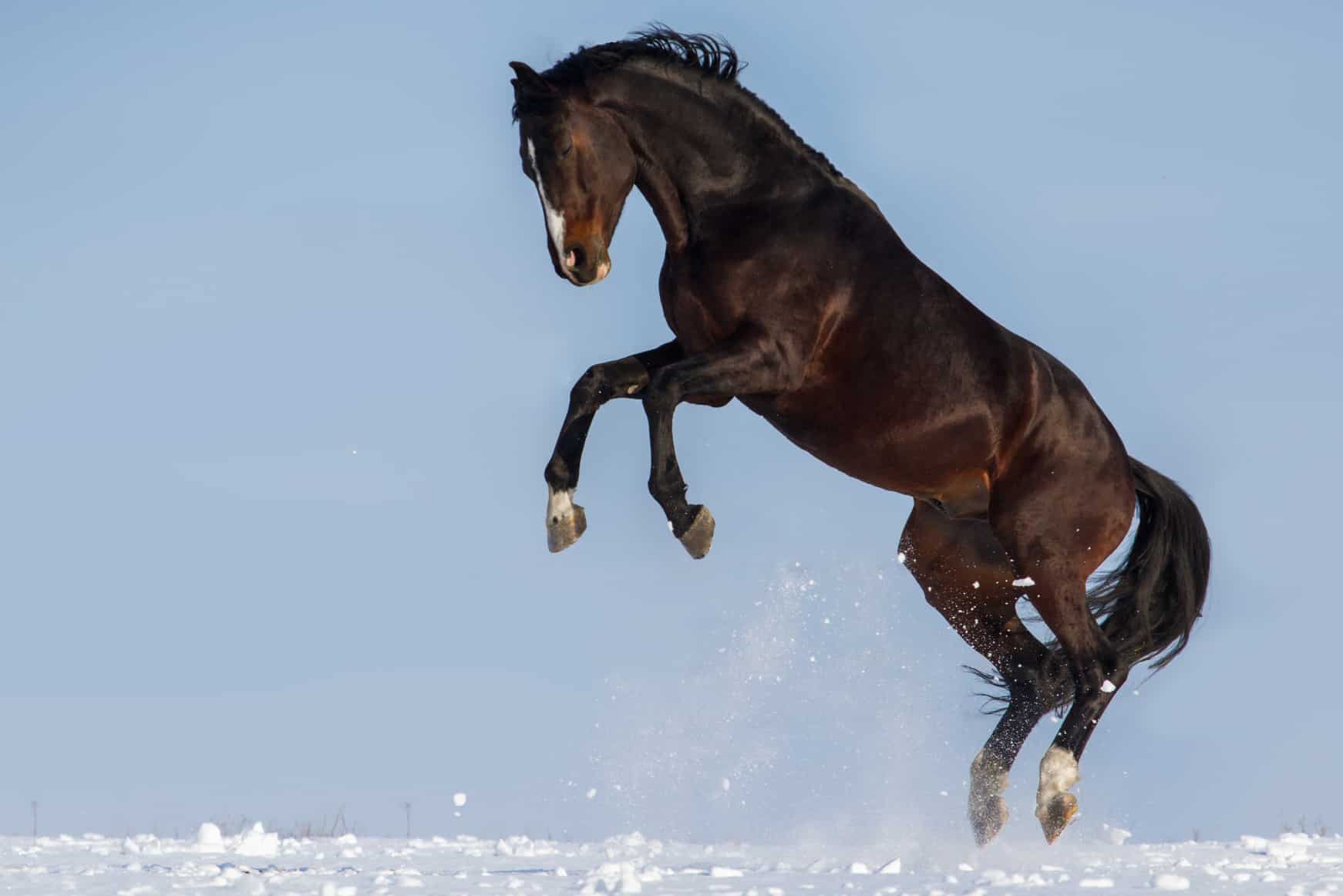
This breed was brought to Iceland by the Vikings around 874-930 AD. After all our Thoroughbreds Quarter Horses Saddlebreds and definitely Arabians were not developed for cold climates.

No refilling buckets or troughs in cold weather.
Can horses live in cold climates. Unlike humans horses acclimate to cold weather by developing fatty tissue that winterizes them according to Ann Swinker associate professor of equine science. Even in cold weather horses prefer to be outdoors said Swinker. The last thing you want to do is put an animal that is acclimated to the cold weather in a heated environment.
After all our Thoroughbreds Quarter Horses Saddlebreds and definitely Arabians were not developed for cold climates. But some horses were. The Icelandic Horse is one of them.
This breed was brought to Iceland by the Vikings around 874-930 AD. In some cases relocating the horse to a cooler climate may be the best option. As for the other horses described above the amount and quality of sweat they produce can vary according to their individual levels of fitness physiques and other factors but as long as they are alert eat and drink readily and recover fully from exertion within an hour or so they are probably just fine.
All horses regardless of breed are more comfortable in cold weather than in hot. It is a myth that breeds like Arabian and Thoroughbred cant tolerate cold weather. If allowed to grow their normal winter coat and provided with a run-in shelter from wind and rain healthy horses can.
Horses can tolerate a variety of climates. The do need some kind of shelter against the rain wind and cold and shade for hot months. Almost anywhere people live horses can.
Most horses grow thick winter coats for warmth and shed them during the summer months. A horse also needs a year or two to acclimatize if moved from one climate to another. Just as some individual humans tolerate hot weather better than others so do horses.
I live in a very hot and humid climate where summer temperatures can often exceed 40C. In addition to the health benefits to the horses there are some additional benefits to the caretaker during the winter months. No breaking ice off troughs or buckets.
No refilling buckets or troughs in cold weather. No unnecessary energy costs associated with heating water all winter. No special installation requirements for cold climates.
Cold temperatures alone dont generally make horses uncomfortable but wind and moisture can be difficult for them to tolerate so they must be able to escape the elements. The best solution is a structural shelter that is big enough to allow all of the horses. Moving Your Horse to a Colder Climate.
Peggy Gibson 35 had lived in Florida most of her life. An owner of two Quarter Horses that she showed in pleasure classes she relished her states moderate year-round temperatures not to mention her ability to train consistently through the winter. Horses for Cold and Snowy Climates.
On the flip side dont put that Arabian in a wintry climate. You wouldnt put a Husky in the Sahara so dont put a greyhound on the Alaskan sled team. Most horses can weather cold temperatures Pun intended.
If you live in a place where winters are cold and snowy you probably worry about your horse coping with the frigid temperatures. But while many of us have hot house flowers that beg to be in their stalls when a cool breeze kicks up there are horses who dont bat a frozen eyelash at the cold. Here is a look at breeds that can withstand the most inhospitable winter weather without the.
There are four different types of desert each with their own climate variations. Subtropical coastal cold winter and polar. As well as notable areas such as the Sahara in North Africa parts of the USA Mexico China and Australia are also desert.
Humans keep horses in all four subcategories of desert although very minimally in polar desert. Cold weather increases the horses calorie requirements. Make sure to adjust quantity accordingly.
And as pasture quality declines or you transition the horse to hay consider supplementing with concentrates containing minerals and vitamins. Horses need water year-round for healthy digestion and that does not mean snow. I really started with at looking at the hot end of how horses cope but you cant help but get involved in the lower end he said.
Ive done some studies in cold climates as well. For example in Northern Europe Scandinavia Finland Sweden you get some pretty cold temperatures. Horses can live in almost any climate.
Found in Africa and Asia where it is very hot and sometimes they even go out to the scorching desert.